Finding the right tenants can make or break your rental business. But how do you know which prospective tenants are going to be high quality and which ones are just wasting your time?
An effective list of tenant screening questions and knowing what to listen for is the key.
Having an effective tenant screening process is critical to being a successful landlord. Asking the right screener questions and knowing what to listen for is the first step. Following up on their answers using a good tenant screening service to verify the facts is the second step.
I will focus on the tenant screener questions in this article.
You can find a number of sample tenant screener questions online but they often lack the reason why you are asking them and the red flags to look out for.
In this article, I will show you:
- The general categories of tenant screening questions
- My list of the 27 most important tenant screening questions to ask
- Examples of revealing red flag answers to listen for
Let’s get started.
Tenant Screening Questions Categories
There are five categories of tenant screening questions you should ask any prospective tenant to determine if they are worth moving forward with in the rental process.
Basics
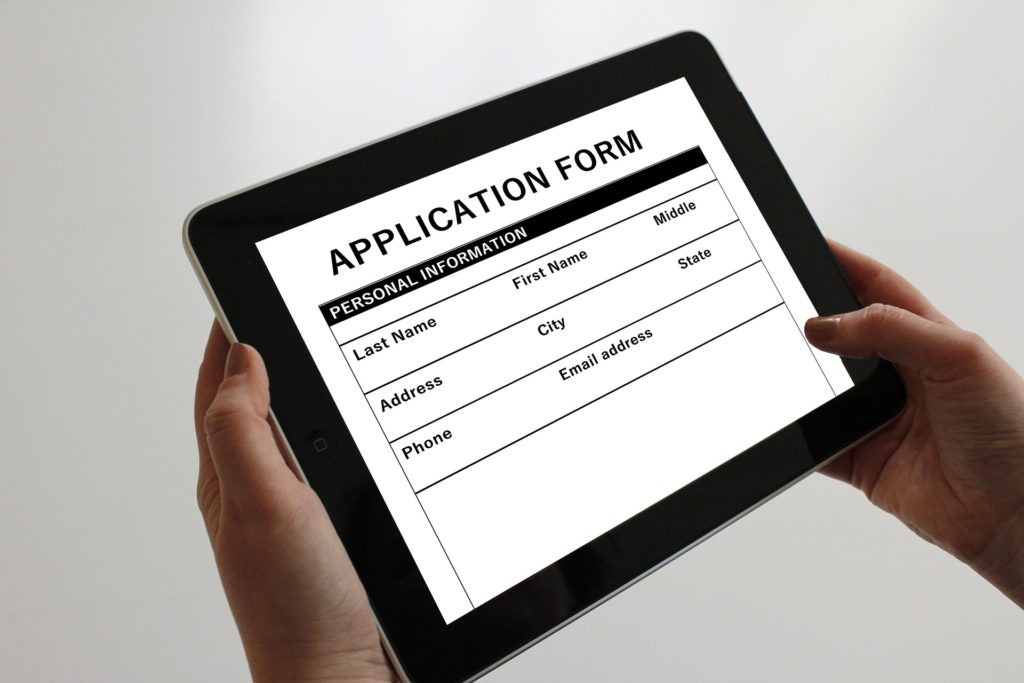
Basic tenant screening questions will help you assess whether there is a good match between what your property has to offer and the prospective tenant’s needs. Who are they and how many will be living in the rental? Do they have pets or support animals? What kind of wear and tear can you expect?
You essentially want to understand if your rental is appropriate for them and vice versa.
Financials

The financials are probably the most important criteria for landlords. You want to understand if the tenant will pay the rent on time, every time. A credit check is just one part of this but you shouldn’t stop there.
And it’s not just about the monthly rent. Can they come up with the security deposit and other fees as well?
Financials are extremely important when deciding if a prospective tenant is a good fit but it is not the only consideration. You should use the financials as a quick way to weed out potentially bad tenants but then you need to go deeper to understand what kind of potential tenant you are dealing with.
Background & References
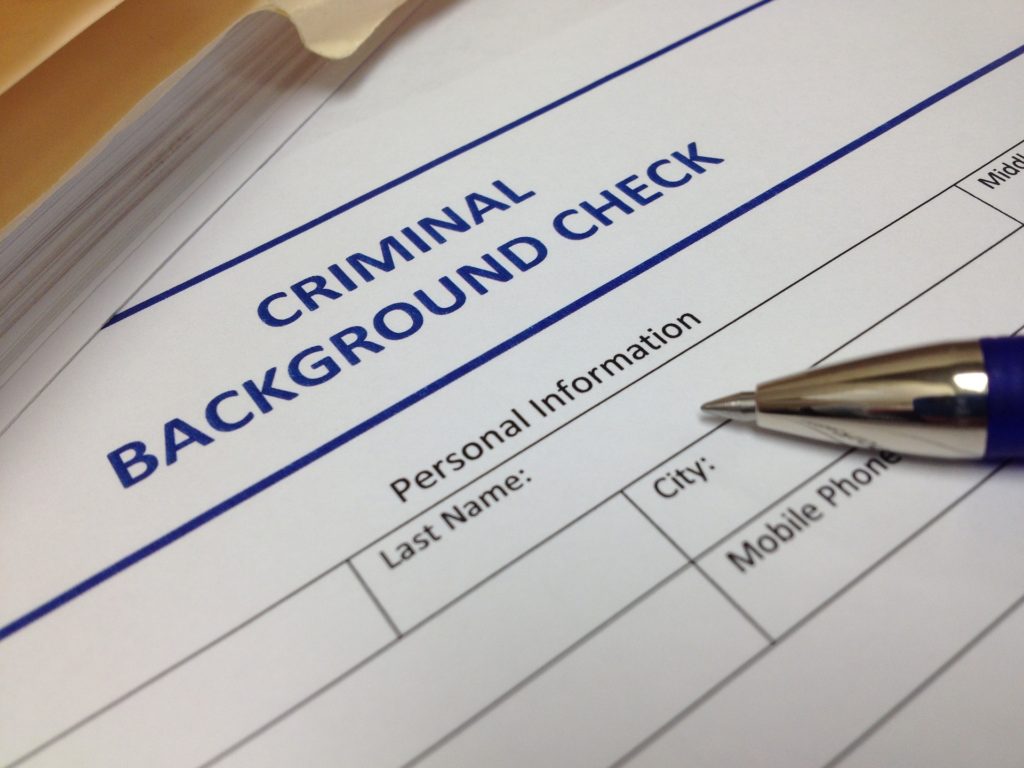
Running a background check is what most landlords think about when they think about tenant screening. As a landlord, you want to find out if your prospective tenant will follow the rules. A background check will give insights into major red flags such as a criminal record but you have to probe deeper to uncover the full story.
Motivation For Moving

There are good and bad reasons for moving. You need to use probing tenant screening questions to uncover any bad reasons for moving. A prospective tenant who is moving to avoid an imminent eviction is a great example of a bad motivation for moving – and one that won’t show up on any background check.
Rental Behavior

Rental behavior screening questions are designed to find out what kind of person you are potentially dealing with. Will they be good tenants or will they trash the place? Equally important, will they get along with the neighbors?
Longevity

Tenant turnovers are costly. You want to find out if your potential tenant is looking to stay put for a while. If you get the sense they don’t plan to stay long, then you should factor in a higher vacancy rate and turnover cost.
Now that you understand what these tenant screening questions are generally looking for, let’s explore the 27 most important tenant screening questions and why they matter.
27 Tenant Screening Questions To Ask Prospective Tenants
Basics

1 – What Is Your Current Address?
You can find out more than you might think from this simple question. What kind of apartment do they live in currently? Are they moving up the property ladder? You’ll want to be extra careful to ensure they can afford it.
Also, on a more practical level, you will need their address in case you need to mail correspondence such as an adverse action letter.
Red Flag – Drive by their current townhome or single-family home if possible. Is it well kept? Is there a car on cinderblocks on the front lawn? A cluttered and poorly maintained exterior is a major red flag.
Red Flag – Another potential red flag is a gap in their rental history. Are they currently living in mom and dad’s basement? That could mean a problem with their income or they have been asked to leave their previous rental. Of course it doesn’t necessarily mean anything bad. It’s just something to look further into before signing a lease with them.
2 – How Many Occupants Will Be Living In The Apartment?
You need to make sure you adhere to local ordinances and only rent to the maximum allowable occupants. Every town will have different laws and regulations so be sure you know before you rent your apartment. A general guideline is 2 people per bedroom but this can vary locally. You need to have a legitimate reason to limit this – limiting normal wear and tear won’t cut it.
Caution. Do not ask if they have children. This can land you in trouble if you reject their application. Also, children are not considered tenants but rather occupants. Simply have the tenant tell you how many occupants will be living there.
Red Flag – One major red flag to look out for is when more people show up to the viewing than originally discussed. This can mean the friend attending the showing might end up living there off the lease or they may actually be the one renting the apartment. Either way, be aware of “friends” asking a lot of questions.
3 – Do You Have Any Animals?
This is a tricky area. You can ask if they have any pets but you shouldn’t ask if they have any assistance animals. This can be misinterpreted as discrimination.
If you have a no-pets policy simply tell them you do and ask if this will be a problem. They should bring up the issue if they have a Service or Emotional Support animal.
If you do allow pets be sure to follow up with questions about Breed, Weight, Age and if they Housebroken or not.
Red Flag – Be aware of vague responses such as they don’t know the breed or their dog is “small and friendly.” Get specifics if you have restrictions. Don’t let them see the apartment if they don’t meet your criteria.
4 – Does Your Current Landlord Know You Are Moving?
This can be also tricky. Some tenants don’t want to tip their current landlord off to the fact that they are planning to move for fear of retribution. However, you need a reference from their current and previous landlords. Try to get a sense of why they don’t want to let their current landlord know just yet.
Red Flag – Do you suspect they are breaking their lease early? Let them know you understand if they are breaking their lease early for good cause but you will check with their landlord for their side of the story. Any lies should disqualify the prospective tenant.
5 – How Many Vehicles Do You Own?
You need to know how many vehicles a tenant has to know what the parking arrangements will be but it can also reveal more.
Red Flag – A tenant who claims to have more cars than the number of adults could be hiding something. It could mean they plan on having a permanent overnight guest or more people living there than originally revealed. Perhaps they are planning to run their auto repair business out of their home. It happens.
Financials

6 – Is Your Monthly Income 3X The Rent?
This is probably one of the first tenant screening questions you want to ask because it will weed out most who aren’t a good fit. It also allows you to avoid the sometimes more awkward/controversial questions about pets and occupants.
Most landlords require a minimum monthly income of 3 times the rent. This is a general rule of thumb that a renter should only pay up to 1/3 of their income for housing costs. It’s what I use as well. You can be more or less stringent in your requirement but you should not deviate from it. Stick to your criteria so you cannot be accused of discrimination later.
Gross vs. Net
You might be wondering if you should be asking for gross or net income. Most landlords use the gross income figure but you should look at your local market. Some areas of the country have very high state and local taxes that can easily make the net pay as low as 50% of gross pay (NJ, I’m looking in your direction). Just be sure you aren’t narrowing your pool of potential tenants too much by requiring 3X net income.
Type of Income
What type of income your prospective tenant has also makes a difference. You want verifiable and reliable income. Ideally this means a steady W-2 paycheck but that won’t always be the case. Some tenants are freelancers or self employed. You will want to have a long history of income to be certain their income is steady enough to afford your home.
You may also need to request prior tax returns to verify total income. If they earn cash and don’t report it, don’t count it!
Red Flag – Don’t trust a tenant who doesn’t have enough W2 income to qualify and can’t produce a tax return to verify total income. There is a chance they don’t report taxes at all and could owe a significant amount to the IRS. Who do you think will get paid first?
Note – The federal limit for reporting income taxes is $10,400 in 2018. Don’t believe an applicant if they tell you they aren’t required to file. If that’s true, they don’t earn or keep enough of their income to qualify for a rental on their own.
7 – Is Your Credit Score At Least 670?
Similar to income requirements, this is subjective and up to you. Once you set your criteria you need to stick to it. You could have different criteria for different rentals. For example, you might require a FICO score of 750 or more for a higher end rental but accept 600+ for a working class neighborhood rental.
What’s a good score?
66% of Americans have a credit score of “Good” or better. A score of 670 is “Good” according to Experian. You should look at your local market to decide what’s an appropriate score.
Caution: There are different scoring methods so be sure you know the scale. 670 out of 850 is different than 670 out of 900!
Does a “Good” score change over time?
The chart above shows the historical distributions of FICO scores. You can see they haven’t changed much even during the Great Recession. This means you can set your criteria and be confident it will be valid for a long time.
What should I look for in a credit report?
A score is an overall indicator. To truly understand your prospective tenant’s ability to pay, you need to look closer at what is driving their score.
When it comes to a credit report, you are looking for three things:
- A long, on-time payment history
- A low debt-to-income ratio
- Any adverse events such as a bankruptcy or lien
Here’s an example of a credit report I get from Cozy.
Red Flag – There are any number of red flags that can arise from this question but a big one is when a tenant asks to submit their own credit report to you in order to avoid the fee. Be careful because these reports can be modified. Insist on running a fresh report yourself. Tell them it’s your policy and you can’t deviate from it.
8 – Have You Ever Been Late Paying Your Rent?
This is a straightforward, yes or no question. You might get some “yes but” answers which is better than lying and being caught later. You will find out from a previous landlord during your follow-ups either way. In fact, Cozy and other rent collection services now report rent payments to the credit bureaus so this may also show up in a credit report.
Is a late payment an automatic disqualifier? That is up to you but I don’t think it is. As long as there isn’t a pattern.
Red Flag – If you find out your tenant wasn’t forthcoming on this question then you should probably not move forward with them in the process. Who knows what else they are hiding from you?
9 – I Require Online Rent Payment At No Charge To You. Is That OK?
I include a clause in my lease that requires tenants to sign up with Cozy for online rent collection and non-emergency maintenance requests. This may not be legal in your state but if it is, it’s a good way to see how flexible your tenant is.
Online rent collection is super convenient and often free to the tenant so why wouldn’t they want to use it? This may not make sense if you are renting in a rural area without access to high speed internet or if you are dealing with seniors who don’t feel comfortable working with an online rent collection service. You need to use your judgment here.
Red Flag – Be cautious of a prospective tenant who doesn’t want to use an online rent collection service. They could be legitimately concerned about the safety of their payments and data. In which case you can refer them to the service provider for more information on their security features and protocols. However, this could also be a sign of an inflexible tenant who will be problematic even before they move in.
Red Flag – Some tenants want to pay in cash. Be careful. They could have issues opening a bank account or simply want to hide their income source. Either way, be sure you know what you are dealing with. Insist on a money order and have them sign a payment receipt every time.
10 – Do You Have The First Month’s Rent Plus Security Deposit?
Most landlords require the prospective tenant to have the funds for the security deposit and first month’s rent. This can easily add up to several thousand dollars and might be a problem for some renters.
Use your market as a guide. In one of my markets, my tenants tend to be well paid and often receive big cash bonuses. They choose to rent for flexibility. If they don’t have the funds readily available, I would question their financial stability.
However, in another market, I tend to get middle class tenants. There could be a very good reason they don’t have the funds readily available such as a divorce. They might be borrowing the funds. In this case, I would consider their payments on the borrowed funds when looking at their debt to income ratio.
Red Flag – If a tenant needs to borrow the funds but is very well paid, this could be a sign of money mismanagement. Look closely at their credit details.
Red Flag – Beware of any tenant who asks to pay the Security Deposit after moving in or in installments. Allow this at your own risk.
Red Flag – Do not accept any amount in check form above the required SD and first month’s rent. This is a scam!
11 – Where Do You Currently Work?
Where someone works can be a good indicator of ability to pay rent. Some jobs have significantly higher turnover like foodservice and retail and could result in a missed rent check.
12 – Can You Explain Any Employment Gaps?
Continuity of employment is equally important. Your rental application and tenant screening questions should ask applicants to provide at least a few years of employment history. People get laid off or leave a job looking for something better. That’s generally not a problem as long as there isn’t a pattern.
Red Flag – Look out for tenants who have trouble holding a steady job. You want to see at least 6 months or more of current employment if they’ve had a history of jumping around or a long, unexplained gap in employment.W
13 – Have You Ever Filed For Bankruptcy?
You want your potential tenant to be forthcoming with this question. It can be easily verified via a credit check. Bankruptcies remain on a person’s credit history from 7-10 years. After that, they are erased.
It’s up to you if you want to disqualify an applicant on the basis of a bankruptcy. However, it could have been caused by a non financial issue such as a medical condition. Be careful because you could be accused of discrimination if you refuse someone who had a bankruptcy due to a medical condition.
Red Flag – You should automatically reject any tenant who says they never filed for bankruptcy but their credit report reveals one.
14 – Can You Pay The Background And Credit Check Fee?
Some tenants will not want to pay for a background check and credit report. It’s part of finding a new apartment and most applicants get it. Some don’t.
Red Flag – Be wary of someone who says they can’t afford or don’t want to pay the application fees. This can be an indication of future nitpicking or even rent withholding.
Motivation For Moving

15 – Why Are You Moving?
There are good reasons for moving and not-so-good reasons. You want to make sure you uncover the true motivation for their move. Is it to be in a better school district? Do they need more space for an expanding family (Careful how you ask this)?
Or is it for a not-so-good reason?
Do they have to move because they’ve been kicked out of their current apartment? Is an eviction imminent?
Red Flag – Listen for suspect answers such as complaining about their current landlord, neighbors, roommate or apartment. Any of these could mean trouble ahead.
16 – When Are You Planning To Move?
You definitely want to ask this question to see if they plan to move when your rental is available. It doesn’t make sense to show a property if someone is looking too far in advance or is just curious. It’s a waste of your time. Move on to the next applicant.
Red Flag – Some people may want you to hold an apartment until they’re ready to move. Avoid them. Or at the very least get a nonrefundable deposit. Even if you collect a non-refundable deposit, it may not be enough to cover the lost rent when all is said and done.
Pro Tip – Be careful if you plan to collect a non-refundable deposit to hold an apartment. Check your local laws to see how much is allowed. In many cases a portion of the amount may be considered a refundable deposit that you are obligated to repay if they skip out on the transaction.
Background & References
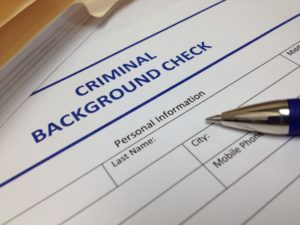
17 – Will You Agree To A Background & Credit Check?
This is a non-starter for me and it should be for you too. Your tenant must agree to a background and credit check if they want to rent one of your units.
Red Flag – “No.” Enough said.
18 – May I Contact Your Current/Previous Landlords?
The current landlord is just a disaster check but you shouldn’t rely solely on their referral. They may be eager to get rid of a problem tenant. Instead, you want to call the former landlord who shouldn’t have a vested interest any more.
Red Flag – You may want to avoid anyone who says they will not let you talk to a previous landlord. However, there may be a good reason so you should follow up to find out exactly why. This could reveal a poor landlord-tenant relationship. Additionally, you might find someone who says they don’t have a previous landlord. You can verify this later when they list their housing history.
Red Flag – Your applicant’s current or previous landlord may be a family member. It’s not necessarily a bad thing but take everything they say with a grain of salt.
19 – What Will Your Background Check Reveal?
This tenant screening question tests to see how truthful your prospective tenant will be. It also allows you to avoid running an unnecessary background check.
The applicant may be very forthcoming and disclose things that might not show up on a criminal background check such as charges that were dropped. You don’t want to wrongly disqualify someone for these non-convictions as that can be discriminatory. You just want to know if they are telling you what they have been convicted for so you can make an informed decision.
Red Flag – They tell you they have no criminal history but in fact something comes up. This is an automatic disqualification for lying (not necessarily for the conviction).
20 – May I Contact Your Current Employer?
Your rental application should include several aspects of the prospective tenant’s employment such as location, type of job, how long they worked at their current and former jobs and salary. You will then want to verify these details with the applicant’s manager or HR department.
Red Flag – Any false statement on the application is grounds for disqualification. There should be no reason to lie unless they are trying to hide something from you.
Red Flag – The applicant’s reference mentions something that suggests the employer is not satisfied with the applicant (always late, bad performance, etc.). This could mean their employment (and your rent) is at risk.
Red Flag – You suspect the phone number and the reference provided are fake. Do a quick Google search to find the main number of the company. Ask to speak to the salary and benefits manager. If they have no idea who you are talking about, then disqualify the applicant.
Rental Behavior

21 – Have You Ever Been Evicted Before?
This a straightforward yes or no question. Yes usually results in an automatic disqualification. However, there can be extenuating circumstances that you may wish to consider such as excessive medical expenses.
An eviction can show up in either a background or a credit check but it’s a good idea to ask this question because they will not always show up in public records. For example, your tenant may have settled out of court before being evicted.
Red Flag – Your tenant claims to have no evictions but a credit/background check or previous landlord reveal otherwise.
22 – Do You Have Frequent Overnight Guests?
It’s in your best interest to know who is staying in your apartment for various reasons. Guests can become lessees even though they haven’t signed a lease with you. Frequent guests can also cause extra wear and tear or disturbances with neighbors.
Asking this tenant screening question might reveal that the applicant has a significant other who often stays overnight. It’s up to you (and your prospective tenant) how much you want to limit this to avoid additional liability.
Red Flag – The applicant tells you that they have a friend who is staying with them just until they “get back on their feet again.” In this case, I would run the same screening process on the friend and insist they are on the lease as well.
Pro Tip – Your lease should include a clause with your policy on overnight guests. Be clear as to how long an overnight guest can stay. For example you might include a clause that allows guests to stay up to 3 consecutive nights without permission but that the tenant needs to apply for express written permission to exceed that limit.
23 – Do You Work Odd Hours Or Nights?
This tenant screening question is more important when dealing with multifamily rentals. A tenant who works odd hours or night shifts such as nurses will want to make sure they can sleep during the day. If the neighbors are loud during the day, this will be a problem.
24 – Does Any Occupant Smoke?
Another straightforward question which is verifiable.
Red Flag – Yellow stains on fingers or fingernails. Small burn holes in clothes. Check their car or current residence if possible if you suspect they are in fact smokers. You might find ashtrays outside or other telltale signs. Disqualify if they lie about not smoking when applying for a non-smoker apartment. Proving someone has smoked and violated your lease can be difficult and removing smoke odors and stains can be very costly.
Longevity

25 – How Long Do You Plan To Live Here?
The right answer to this question depends on what you are looking for in your optimal tenant. I prefer tenants who stay longer to reduce turnover and vacancy costs. Other landlords prefer the flexibility of month-to-month tenants who can be asked to leave with 30 days notice.
Red Flag – Someone whose spouse is not currently employed or looking in the local area for employment could break the lease early and leave you scrambling to find a new tenant.
26 – Where Have You Lived In The Last 5 Years?
Asking this question will reveal how often this applicant tends to move. The ideal tenant stays put for a while before needing to move for legitimate reasons such as a new job or more space.
Red Flag – Beware of any prospective tenant who is looking to break their current lease. There’s a good chance they might do it again with your lease.
Red Flag – The tenant provides an illegitimate previous address.
Bonus Question
27 – Do You Have Any Questions For Me?
This is my favorite of all the tenant screening questions! I love this question because it’s open-ended and you will get plenty of insight as to what is going on in your perspective tenant’s head. They might reveal their fears and concerns regarding the property which can be a good indicator of how high maintenance they might be or if they plan to misuse the property.
Red Flag – Various. Look for answers that reveal the tenant will tend to complain about every issue with the rental or they plan to misuse the property (e.g., “When do quiet hours start here?”).
Want to Learn More?
You’ll find many more tenant screening tips in my book: The Accidental Rental. A Complete Guide to Converting Your Home into a Profitable Rental Property. Don’t miss your chance to build wealth through real estate. The Accidental Rental will show you how step-by-step!
Next Steps
Now that you’ve found a tenant that passes your initial screening, the next step is to perform a Credit and Background check. Here are a couple of great tenant screening services to get you started.
Conclusion
Every landlord intuitively understands that finding a great tenant makes life as a landlord much easier. The trouble is, how do you know a great tenant when you find one?
Having a tenant screening process with a comprehensive list of questions to weed out unqualified applicants is important. But it can be hard to know which applicants are going to be great tenants versus which ones shouldn’t move forward with the rental application process.
You need to be able to spot a red flag answer when you hear one. This is a critical skill every landlord can learn
Hopefully you will find the above list of my 27 tenant screening questions and the red flag answers helpful the next time you list your property for rent.
What are your best tenant screening questions? Leave me a comment below to share your process and red flag watch outs.


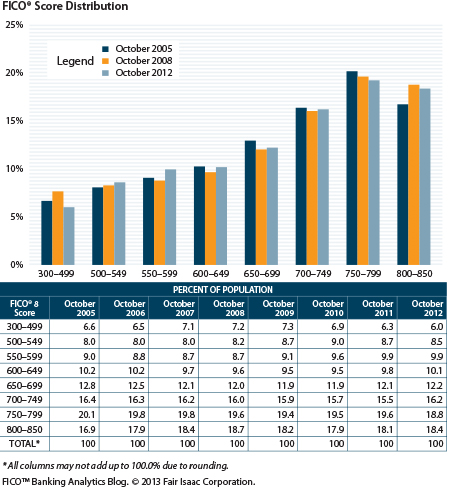



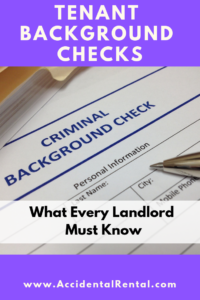
Great list! One more thing you can get from current address is an eviction check. Calling current and previous landlords could reveal this, but you got those numbers from your prospective tenant. Are they even really their landlord? I’ve encountered a good scammer or two. Credit check won’t reveal eviction (TransUnion and those guys don’t have rental history reports – they should, but that’s another discussion). Background check won’t reveal eviction. Those are typically state or maybe county based and only report any criminal history. Eviction records are typically held with the city. Call the city of their last 2 places of residence. Ask them if they were ever evicted. It’s public record, you just need to know how to find it.
Thanks for the tip!
Pro-tips and red-flags add value to your tenant screening questions. I have read multiple articles on this tenant screening. But I have to say your way of writing is quite different that kept me engaged throughout.
Question. I have a tenant I am choosing to not renew their lease. The tenant pays on time (even early on occasion) and keeps the place nice. They have a great job and no pets. However they are very high maintenance (38 calls for “non broken” items in 6 months, super picky about boiler plate lease language, etc) I don’t want another year of unnecessary calls. What do I say when someone calls for references?
Stick to the facts that you can document. Answer only what is asked. In this case you need to be prepared to say why you aren’t renewing the lease. Can you document that they called 38 times, disputed the lease terms, etc.? Avoid the question if you can’t give a fact-based answer.
The truth.
just as you’ve stated here. Not everyone will see those concerns as “high maintenance”. A tenant who pays on time and keeps the place in order is a dream. The next tennant could leave you begging for mr picky pants. Count your blessings.
Great list Domenick!
The only thing I’d add is to put some of the info in your ads where possible. I include wording that I must have security deposit and first months rent up front and I do very thorough screening and reference checks. This helps discourage a lot of non-qualified individuals as well.
Keep up the great articles.
Thanks Bill! Good point. The ad should do a lot of the pre-screening for you.
I have a potential tenant who is 69 years old, and although she is in great shape, worry about 10 steep stairs in a walkup. Would it be discrimination if I turn her down?
I’m not an expert but that sounds like age discrimination.
Do I ask these questions when the potential renter comes to view the property?
You can use some as pre-screener questions that will help you weed out a lot of unqualified prospects. Income and credit score are great screener questions to ask BEFORE showing a property. Other questions you can use as part of a formal application when showing the property.
Thanks for these great information, my rental agreements are designed for crooks, but when I find a none crook tenant, I be more flexible with them, my last 10 year tenant just died; after spending over $25,000, I am renting again, but, even at age 86, I have learned much from you.
Thanks for your willingness to help others, If I ever need anything that you sell, I will purchase it from You, Thanks and may God bless and protect you, your families and staff. Amen
Thanks for being a reader and for the kind words!
My rental is in a college town. I have a group of 4 Fraternity boys who want to rent it, and a group of girls. I’d rather not rent to the frat boys for rear of an Animal house situation, however I can’t discriminate based on sex. But otherwise both groups are equal. How can I reasonably choose?
I don’t rent in college towns so I’m not an expert in this area. However, knowing that credit is not going to be a good discriminator, I would look for clean background checks and at how professional they are in the process. Did they answer all the application questions truthfully? Did they show up on time to the showing? How messy was their car? Don’t assume the boys are going to be harder on your place than the girls. I’ve rented to women who were far worse than men.
Can the rental people ask for banking information including the bank account number
Some landlords ask for bank account info as a way to verify the applicant has the funds available to move in (security deposit + first month rent) or to verify monthly income and expenses. You can refuse but that might be a red flag to them. Ask them what they need it for and offer to provide them a bank statement with your account number removed if it’s your savings account. If it’s your checking account, then I wouldn’t bother obscuring the account number because that’s written on every check you give to someone.